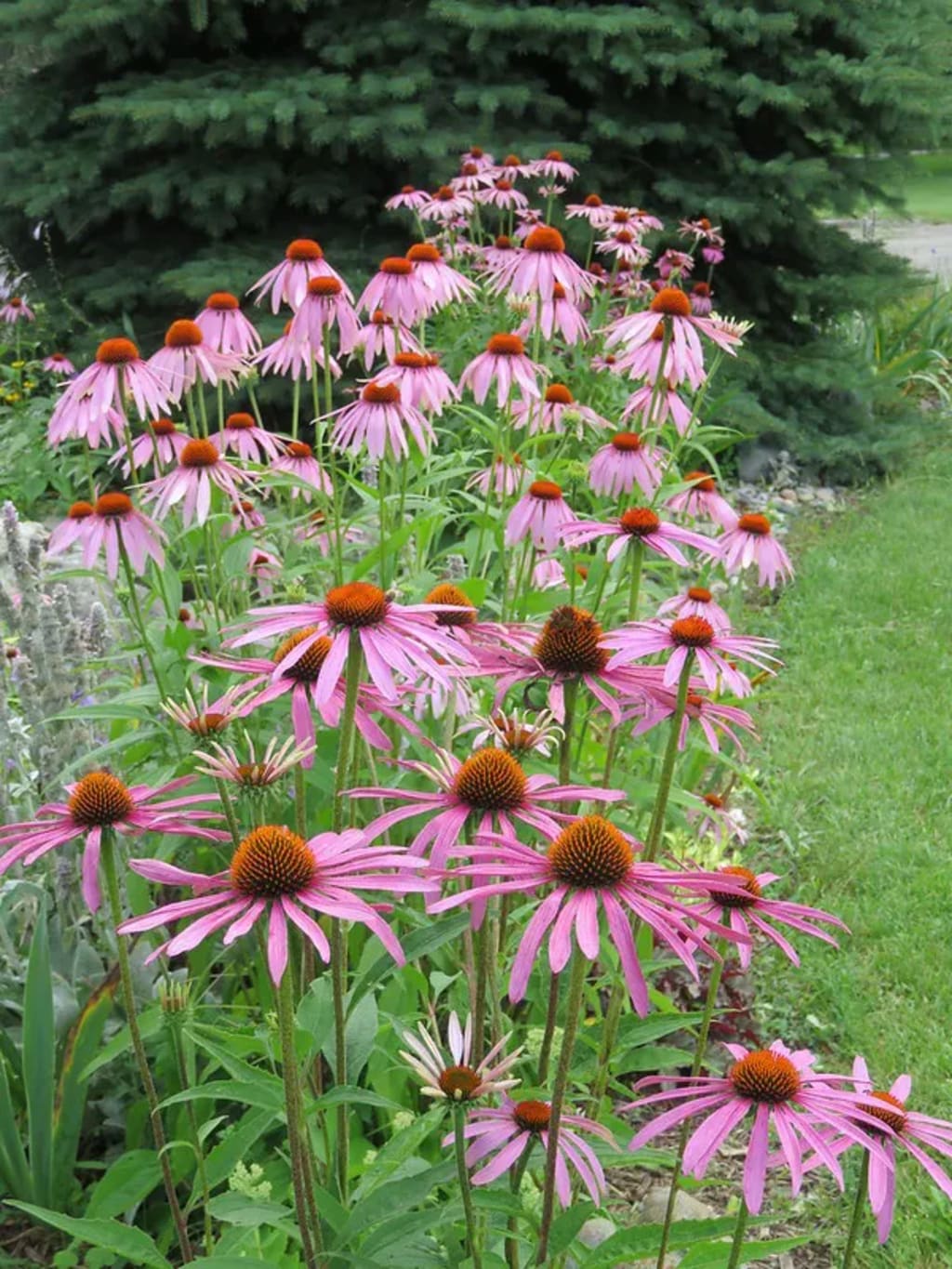
What is Echinacea?
If you never heard of this herb you are probably wondering what it is. Echinacea is also known as the purple coneflower. This herb is one of the most popular herbs that is known throughout the world. Echinacea has been treating many ailments by the Native Americans for centuries. This herb is a remedy for the cold, and flu as well as pain, migraines, inflammation, and many other ailments.
This herb is part of the daisy family which is native to North America. This herb grows in open wooded areas and in the prairies. The roots and upper parts of this herb are used in teas, tinctures, extracts, and tablets.
What are some of the benefits of Echinacea?
1) It is high in antioxidants
This herb is rich in antioxidants like flavonoids, rosmarinic acid, and cichoric acid that may defend the body against oxidative stress
2) Cancer
No evidence that proves that taking this herb, can cure, treat, or prevent cancer but there are some therapist who claims it can help relieve side effects from treatments like radiotherapy and chemotherapy. there needs to be more research done to prove this one way or the other.
3) Immune System
A review of 14 studies found that taking Echinacea may lower the risk of developing colds by more than 50% and shorten the duration of a cold by one and a half days (1).
4) May lower blood sugar levels
In a test-tube study, an Echinacea Purpurea extract was shown to suppress enzymes that digest carbohydrates. This would reduce the amount of sugar entering your blood if consumed (2). There still needs to be more research done on the side effects of Echinacea on blood sugar.
5) Reduce Anxiety
A study found that Echinacea Angustifolia extracts rapidly reduced feelings of anxiety in both mice and humans (3). There needs to be more research done to see if it does work.
6) Anti-inflammatory Properties
In a 30-day study, adults with osteoarthritis found that taking a supplement containing Echinacea extract significantly reduced inflammation, chronic pain, and swelling (4) These adults did not respond well to conventional non-steroidal inflammatory drugs (NSAIDs) but found the supplement containing the Echinacea extract helpful(5).
Dosage
Dried powdered extract: 300-500 mg of Echinacea Purpurea 3 times a daily
Liquid extract tinctures: 2.5 mL 3 times daily or up to 10 mL daily
These are dosages for the short term since long-term effects are unknown.
10 Accepted Species of Echinacea
Echinacea Angustifolia
Echinacea Atrorubens
Echinacea Laevigata
Echinacea Pallida
Echinacea Paradoxa
Echinacea Purpurea
Echinacea Sanguinea
Echinacea Serotina
Echinacea Simulata
Echinacea Tennesseensis (6)
How to Make Tea
Ingredients:
1 teaspoon dried Echinacea or 1 teabag
boiling water
Instructions:
Boil 1 cup of water in a tea kettle.
In a cup, place 1 teaspoon of Echinacea or one teabag.
Pour the hot water into the cup.
Cover, and steep for 5 minutes.
Add honey, sugar, or lemon to taste.
Precautions
It is recommended that women who are pregnant should avoid taking any Echinacea until there is more research done to see if there are any birth defects associated with taking this herb. It is also recommended that when breastfeeding you should take precautions. Seek advice from a pharmacist, naturopath, or your doctor before taking this herb or if you are pregnant, breastfeeding, or taking any medications.
This herb should not be given to children under 12 years of age
For most people, it is safe to take Echinacea by mouth with no side effects. However, some may have side effects like nausea, upset stomach, and diarrhea if taken with medications associated with lupus, psoriasis, rheumatoid arthritis, bleeding, heart disease, and autoimmune diseases. Rare side effects include rash, itch, diarrhea, nausea, and abdominal pain.
Disclaimer
I am not a doctor so this should not be considered medical advice or substituted for medical treatment. Consult your doctor before taking this herb.
Sources
1) www.healthline.com/Echinacea
2) www.healthline.com/Echinacea
3) www.healthline.com/Echinacea
4) www.healthline.com/Echinacea
5) www.healthline.com/Echinacea
6) en.m.wikipedia.org/echinacea
About the Creator
Lisa Briskey
I love to write, crochet, and sew. I am a grandmother of a two-year-old granddaughter.
Follow me on Medium: https://medium.com/@lisabriskey5
And support me on my Ko-fi: https://ko-fi.com/lisaj or https://ko-fi.com/lisabriskey
Enjoyed the story? Support the Creator.
Subscribe for free to receive all their stories in your feed. You could also pledge your support or give them a one-off tip, letting them know you appreciate their work.






Comments
There are no comments for this story
Be the first to respond and start the conversation.